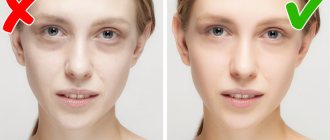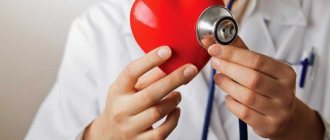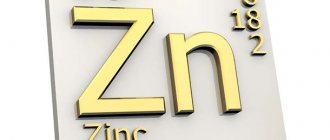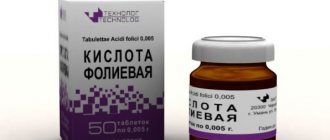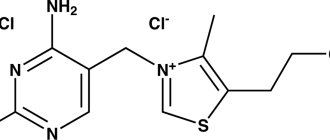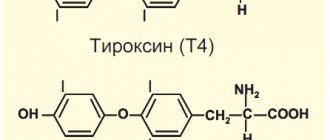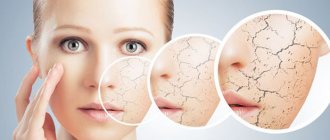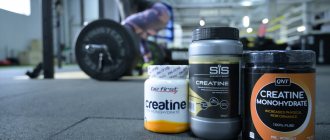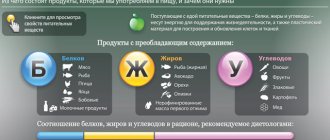Important trace element
There are 92 trace elements found in nature. Of these, 81 are present in the human body. Among them is zinc (Zn). It is present in all human tissues and organs. However, most of it - 63% - is concentrated in skeletal muscles.
Zinc is involved in many processes that occur in the human body:
- in the synthesis of proteins and hormones;
- is part of 400 enzymes;
- affects cell growth and division;
- regulates the synthesis of nucleic acids;
- necessary for carbohydrate metabolism;
- ensures the development and functioning of the genital organs.
Zn deficiency causes malfunctions and leads to serious illnesses.
Functions and effects of zinc
It is impossible to overestimate the benefits of the chemical element. Zinc is an invariable participant in thousands of processes that occur in the body. The action of Zn is as follows:
- Effect on the sense of taste and smell. Scientists have concluded that Zn is associated with areas of the brain responsible for smell and taste. That is why a lack of the substance manifests itself as malfunctions in the functioning of taste buds, and also leads to a decrease in the acuity of smell. In such cases, additional intake of zinc-containing products or special medications is prescribed.
- Memory improvement. When considering the question of what zinc is needed for, it is worth noting the role of this metal in strengthening memory. Regular intake of Zn along with food and supplements activates brain activity, accelerates the transmission of sensory impulses, and increases the performance of the “gray matter”. At the same time, studies have proven that its lack leads to memory impairment.
- Strengthening the immune system. Zinc is important for human immunity. Its action is aimed at stimulating and strengthening the body’s general defenses. This is why Zn is often prescribed in combination with ascorbic acid. Together they help fight colds and flu faster. The effect of zinc on the human body is so great that if it is taken at the initial stage of the disease, it is possible to quickly overcome infections.
- Improved vision. It has been scientifically proven that Zn plays an important role in the functioning of the retina and its main element - the macula. Regular intake of the element in the diet guarantees optimal concentration of the substance in tissues and blood, protection against eye diseases. So, to quickly relieve irritation, you need to take 30 mg of Zn per day for a month.
- Skin rejuvenation. Thanks to its beneficial effect on the outer layer of the epidermis, Zn has received the title of the main beauty vitamin. Its action is aimed at improving the color and appearance of the skin. It has been proven that the mineral is the main participant in the processing of fatty acids, which affect the regeneration process. In addition, zinc in the human body regulates the production of sebum, a component of many cosmetic ointments.
- Strengthening nails. To understand whether there is enough Zn in the body, it is enough to assess the condition of the nail plates. The mineral is involved in protein synthesis and, as a result, ensures proper growth of nail plates and tissues. If the nails are brittle and weak, then this indicates the need to change something in the diet, add zinc-containing products to it.
- Improved hair condition. One of the most important effects of Zn (primarily for women) is to accelerate the process of hair growth and improve its appearance. Experience has shown that hair loss can be easily prevented by taking medications with Zn or using special diets.
- Normalization of the hormonal system. Zinc for the body is the main regulator of the hormonal system. Thanks to its participation, insulin is utilized and produced. The action of Zn is aimed at protecting pancreatic cells that produce insulin. In addition, the metal is involved in metabolic processes occurring in the testes, ovaries, pituitary gland, thyroid gland and other human organs.
- Improving the absorption of vitamins. If the mineral enters the body in full, retinol and tocopherol are better accepted.
- Help in the formation of a child. Doctors know how zinc is beneficial for women during pregnancy. It has been proven that a sufficient supply of the element in the blood guarantees the normal formation of bones, heart muscle, brain, eyes, palate, lungs and other organs in a child. In addition, a stable supply of Zn during pregnancy reduces the risk of miscarriage.
- Acceleration of cell division. Research has shown that zinc is a major contributor to DNA production. In addition, the element is involved in the normalization of cell structure - DNA, ribosomes and RNA. For this reason, the supply of the mineral is necessary for the regeneration of bones, nails and hair.
Body protector
Zinc provides the body's protective function. Without it, the immune system cannot function. It activates thymulin, a hormone of the thymus gland. And this, in turn, ensures the maturation of T-lymphocytes, the formation of T-helpers and T-killers, the recognition of antigens, and the production of interferons.
Zinc inhibits the reproduction of viruses.
If you normalize the daily dose of zinc in your body during the first 24 hours after you notice signs of a cold, the symptoms of a cold will subside. This doesn't mean you will recover instantly. But your health will improve significantly.
The process of viral reproduction with a sufficient level of microelement slows down and then stops. The pathogens of ARVI, intestinal infections, and herpes simplex virus are especially sensitive to the effects of the microelement.
Zinc is an active antioxidant. Protects the body from the action of free radicals. This means it protects against premature aging, helps preserve youth and beauty.
However, the beneficial properties of the microelement do not end there.
How does zinc work in the human body?
Numerous studies have been conducted that elucidate the biochemical mechanisms of action of zinc. I will briefly tell you about some of them.
1) In an experiment on zinc-deficient mice with sepsis, it was shown that zinc is responsible for stopping the production of an inflammatory protein known as serum amyloid A.
Without the regulating effects of zinc, inflammation gets out of control and causes catastrophic malfunction.
2) Adequate levels of zinc protect us from environmental toxins.
Zinc plays an important role in antioxidant defense, protecting against oxidative damage from free radicals. Which can harm DNA.
This is very important when our food and water contain pesticides, heavy metals and other chemicals.
In one study, healthy men with low dietary zinc intake were found to have damage to their DNA.
3) Zinc deficiency contributes to increased morbidity and autoimmune diseases.
This conclusion was made in one recent study published in the scientific medical journal “Nutrition” (translated as Nutrition).
Why does the body need zinc?
- Provides healthy skin, active growth of hair and nails.
- Supports taste and olfactory sensitivity.
- Affects brain functions. Improves memory and attention. Protects against senile dementia and mental illness.
- Helps normalize blood pressure.
- Improves metabolism.
- Promotes rapid healing of wounds.
- Zn deficiency can cause infertility.
- Ensures the growth and development of children.
Benefits of zinc
The benefits of zinc for the body can be observed both externally (zinc treats dermatoses, acne, slows down the aging process of the skin) and internally - the metal helps with inflammation of the gastrointestinal tract and kidneys. It has been noted that zinc affects intellectual abilities (the level of the element in the body of talented students is much higher than that of lagging students). The benefits of zinc for men's health are also obvious - the element is actively involved in spermatogenesis , and also prevents the development of prostate tumors.
Useful properties of zinc:
- improves metabolic processes and increases the rate of protein synthesis;
- stimulates the immune system, increases the body's resistance to bacterial, viral infections and cancer;
- accelerates skin regeneration;
- improves memory;
- normalizes blood circulation;
- promotes the absorption of carbohydrates and fats;
- improves taste sensitivity and sense of smell;
- supports vision ;
- normalizes the functioning of the gastrointestinal tract;
- participates in the formation of the musculoskeletal system.
Zinc is especially necessary for men. With its help, reproductive function is supported and testosterone . Therefore, the stronger sex needs to enrich their diet with zinc-containing products.
However, today not only men, but many women and children are deficient in zinc. Microelement deficiency is observed in pregnant women and people whose profession requires attention and concentration.
Zinc helps prevent female infertility , regulates ovarian function, endometrial formation and pregnancy. Throughout pregnancy, zinc affects the development of the fetus and is responsible for the prevention of genetic failures in the formation of tissues, especially the brain, bones and teeth.
Zinc deficiency can occur with frequent consumption of foods rich in fiber, excess copper in the body, alcohol abuse and protein deficiency. deficiency is observed in people who love sweet and salty foods.
Recommended daily dose of Zn for humans
| Children | ||
| 1-3 years | 4-8 years | 9-13 years |
| 3 mg | 5 mg | 8 mg |
| Women | |||
| 14-18 years old | from 19 years old | pregnant women | Nursing mothers |
| 9 mg | 8 mg | 11 mg | 12 mg |
| Men | |
| 14-18 years old | from 19 years old and older |
| 11 mg | 11 mg |
Daily value of zinc
The daily norm is small and amounts to 12 mg for women and 15 mg for men. But at the moment, scientists disagree, since this norm was determined back in 1970. Many people tend to consider rates 3-4 times higher as the norm. The argument for this is the regular lack of this element in the body.
There are certain groups of people who may need more zinc:
- Pregnant and lactating women
- With high physical and mental stress
- First responders
- Vegetarians
- Athletes
But you should not increase the dose of zinc on your own; this can only be determined by your doctor. Even if you fall into one of the categories, this does not mean that you need more zinc.
Who needs the greatest doses of Zn
- Women during pregnancy and breastfeeding. Since at this time the mother provides this microelement not only to herself, but also to her baby.
- Children. Zinc ensures their normal growth and development.
If your child is lagging behind his peers in growth, it is necessary to check the level of Zn in his body. Perhaps it is worth reviewing his diet, adding the right foods, and the baby will begin to develop normally.
- People doing heavy physical labor.
- Professional athletes.
Extensive physical activity and sports reduce the presence of zinc in the body.
Zinc deficiency and excess: what is the danger?
Knowing why zinc is needed in the human body and taking into account dosage requirements, it is possible to avoid many health problems. But there are situations when Zn is supplied in more or less volume than required. What is the danger?
Problems associated with zinc deficiency:
- development of pathologies of the digestive tract;
- hyperactivity;
- depressive states;
- anemia;
- loss of appetite;
- tendency to alcoholism;
- diarrhea;
- blurred vision;
- separation of the nail plates;
- the appearance of skin diseases, slowing down the wound healing process;
- deterioration in the appearance of hair;
- decreased immunity;
- rapid aging;
- risk of developing a malignant tumor.
Besides:
- the risk of developing prostate adenoma increases;
- the concentration of lead in the body increases;
- aging processes accelerate;
- the risk of malignant tumors increases;
- immunity is weakened;
- the risk of premature birth increases;
- the volume of insulin decreases and so on.
Many people know why zinc is needed in the body and try to include it in their diet. Despite this, mineral deficiency still occurs. The following reasons are possible:
- accumulation of hazardous metals in the body;
- alcohol abuse;
- the presence of psoriasis, seborrhea;
- increased intake of estrogens, diuretics and other dangerous drugs;
- lack of meat and dairy products in the diet (typical for vegetarians);
- problems with the gastrointestinal tract - fermentopathy, dysbacteriosis and other pathologies;
- postoperative conditions.
We must not forget about the negative effect of zinc on the body in case of excess. The following consequences are likely:
- dysfunction of the immune system, autoimmune reactions;
- liver dysfunction;
- nausea, gastrointestinal dysfunction;
- pathological disorders of the hair, skin and nail plates;
- decreased iron and copper levels.
The importance of zinc for the human body has been proven by many scientists. the reasons for the excess were established . There are several of them:
- disturbance of Zn metabolism in the body;
- excessive intake of drugs that contain zinc;
- entry of metal through the skin, for example, when interacting with metal in production.
Zinc content in products
The human body itself does not produce zinc. He gets it from food. That's why it's important to plan your daily diet wisely. Include necessary food products.
| Product | Zinc content per 100 g of product | Percent Daily Value |
| Pumpkin seeds | 7.6 mg | 80% |
| Sesame | 7.2 mg | 75% |
| Wheat bran | 7.27 mg | 61% |
| Pine nut | 6.45 mg | 54% |
| Sunflower seeds | 5 mg | 42% |
| Oats | 4 mg | 42% |
| Grain beans | 3.21 mg | 27% |
| Oat bran | 3.1 mg | 26% |
| Pistachios | 2.8 mg | 23% |
| Peas | 2.44 mg | 20% |
| Lentils | 2.42 mg | 20% |
| Garlic | 1.16 mg | 10% |
| Buckwheat | 2.4 mg | 25% |
| Peanut | 3.27 mg | 27% |
| Walnut | 2.57 mg | 21% |
| Almond | 2.12 mg | 18% |
| Millet | 1.68 mg | 14% |
| Rice | 1.42 mg | 12% |
| Wheat | 2.7 mg | 28% |
| Beef | 3.24 mg | 27% |
| Mutton | 2.82 mg | 24% |
| Turkey | 2.45 mg | 20% |
| Chicken meat | 2.06 mg | 17% |
| Liver | 12 mg | 126% |
| Crabs | 5.9 mg | 62% |
| Oysters | 20-38 mg | 160 – 400 % |
| Cheese | 3 - 5 mg | 30 – 40 % |
| Cottage cheese | 0.4 mg | 3% |
| Chicken egg | 1.1 mg | 9% |
| Milk | 0.4 mg | 3% |
| Chocolate | 3.3 mg | 35% |
| Cocoa (powder) | 6.8 mg | 72% |
Sources of zinc
The main source of zinc is meat and fish, which is why it is more difficult for vegetarians to maintain its balance. There is much less of it in plant foods, but you can always add one of the pharmacy vitamin-mineral complexes to your diet.
- Meat (chicken, beef, pork, turkey, lamb)
- By-products (liver and kidneys)
- Eggs
- Cottage cheese and cheese
- Dark chocolate
- Bran (wheat, rye)
- Legumes (chickpeas, peas, beans, lentils, soybeans)
- Vegetables (potatoes, tomatoes, bell peppers, cabbage, garlic, beets)
- Seeds (pumpkin and sunflower)
- Cereals (buckwheat, barley, wheat, rice, bulgur, quinoa)
- Cherries, currants, raspberries, blackberries and blueberries
- Nuts (pine, almonds, cashews, peanuts)
- Citrus fruits (grapefruit, orange, lemon, lime)
Where does the body get Zn?
Zinc is found in most of the foods we eat. However, it must be remembered that not all of them are absorbed equally. If you are wondering why the body needs zinc, you may need to reconsider your gastronomic preferences.
The human body absorbs zinc more easily from animal foods than from plant foods.
To saturate your body with zinc, include meat in your daily diet. Anything will do: beef, pork, lamb and even chicken. Red meat contains more trace elements than white meat.
Plants contain zinc in a special form. It is poorly absorbed. This is why vegetarians are at risk. They may develop zinc deficiency. As well as B vitamins and iron.
If a child does not eat meat well, nutritionists recommend that parents include egg yolks in their diet more often. They will help maintain Zn at the required level.
Results
It was discussed above why the body needs zinc and what effect it has. In conclusion, it is worth highlighting a few interesting facts:
- The mineral is found in every cell of the human body - including muscles, brain, liver and eyes.
- The total zinc content in living human tissue is 2.5 mg. This is twenty times more than other minerals in the body.
- Zinc is better absorbed if taken on an empty stomach.
- Active sweating leads to the body losing up to three milligrams of zinc per day.
Nowadays, scientists have carefully studied what zinc is needed for, as well as what the daily dosage should be. At the same time, the benefits of the mineral are deservedly appreciated in many areas of human activity - in medicine, cooking, cosmetology. There is little left to do - to assimilate what is said in the article, glean important points and try to enrich the diet with such a useful element.
Symptoms of deficiency
- White spots and stripes on the nails.
- Seizures in the corners of the lips.
- Hair loss.
- Slow wound healing.
- Frequent infectious diseases.
- Skin diseases.
- Loss of appetite, weight loss.
- Impaired perception of taste and smell.
- Decreased visual acuity.
- Children are stunted.
Clinical signs appear when the body experiences a deep deficiency of a microelement. At an early stage, zinc deficiency is difficult to discern. It doesn't show up at all. Only a blood test can show it.
Deficiency of zinc, B vitamins, and iron are very similar in external indicators. Sometimes it is difficult to understand what the body is missing. In such cases, it is necessary to take a blood test. If this is not possible, then it is necessary to include meat in your daily diet.
Zinc deficiency is a risk factor for many diseases.
Most people do not think or realize that they are deficient in this mineral. Zinc deficiency in humans is a significant problem in most countries in the world. The World Health Organization reports that the prevalence of zinc deficiency is 31%.
Why are people not immune to zinc deficiency in the body?
Zinc deficiency is assessed as one of the risk factors for disease worldwide.
Underdeveloped countries especially suffer from high mortality rates due to zinc deficiency, as it is associated with diarrhea and pneumonia in children.
Zinc deficiency was responsible for 176,000 deaths from diarrhea, 406,000 deaths from pneumonia, and 207,000 deaths from malaria in Africa, the Eastern Mediterranean, and Southeast Asia.
Regular intake of zinc is required for all people to live. Therefore, zinc is called one of the “essential” microelements.
After all, zinc is present in every human cell, organ, bone, tissue and fluid.
Large amounts of zinc are found in the prostate and seminal fluid in men.
Products containing zinc
Since the influence of zinc properties on the human body is enormous, it is therefore important to ensure that a person receives the daily requirement every day. To do this, it will be useful to include in the menu:
- oysters;
- wheat bran;
- bitter chocolate;
- seeds, nuts, sesame;
- beef and pork liver;
- chicken breast and heart;
- eggs;
- hard cheese.
The leader in this list is oysters: 100 g of product contains 60 mg of zinc, which is several times the daily requirement. Remembering not only the benefits of zinc, but also its harm to the body, you should not get carried away with this delicacy. A lot of zinc is also found in vegetables such as beets, carrots, cabbage and peppers.
Zinc Supplements
Over-the-counter (non-prescription) supplements:
- Zinc acetate, zinc gluconate, zinc histidine, zinc picolinate and zinc sulfate in the form of tablets, capsules, ointments are available as dietary supplements.
- Zinc can also be included in multivitamin/mineral supplements.
Benefits of Zinc
Zinc supplements are effective in:
- Prevention and treatment of zinc
- Treatment of acrodermatitis
Zinc supplements may be effective for:
- Reducing diarrhea for
malnourished children or in children who have low zinc levels - Increasing vitamin
A levels in underfed children or children with low zinc levels - Promoting growth and reducing child mortality in areas with general zinc deficiency
- Prevention and treatment of pneumonia in malnourished children in developing countries
- Treatment of Wilson's disease
Zinc supplements may not be effective in preventing or treating AIDS, diarrhea-wasting syndrome, arthritis, cataracts, inflammatory bowel disease, malaria, tinnitus and influenza, or in increasing birth weight and gestational age, time spent with children, born to HIV-infected women, or increased blood levels of iron in pregnant women. There is insufficient data on the effectiveness of oral zinc supplements in shortening the duration and severity of colds
(when taken as a tablet within 24 hours of the onset of a cold). Intranasal zinc ointments should be avoided as they can permanently damage the sense of smell.
There is insufficient data on the effectiveness of zinc in the prevention or treatment of acne, age-related macular degeneration, Alzheimer's disease, anorexia, asthma, attention deficit hyperactivity disorder, bad breath, abscesses, cancer, ulcers, celiac disease, dandruff, type 2 diabetes, psoriasis , gum disease (gingivitis), hepatic encephalopathy, hepatitis, high cholesterol, HIV/AIDS, hypothyroidism, infertility, inflammatory bowel disease (Crohn's disease, ulcerative colitis), varicose ulcers (venous or arterial), leprosy, malaria, male sexual problems , measles, menstrual pain, middle ear disease, mood disorders, radiation-induced oral ulcers, muscle cramps, osteoporosis, parasites, prostatitis, rheumatoid arthritis, sickle cell anemia, stomach ulcers, stress, premature birth, respiratory tract infections, tinnitus (tinnitus), vaginitis, warts, or improvement of physical performance, immunity or motor or mental development in children.
What foods contain zinc?
It must be emphasized that foods containing zinc are not very often used in a daily balanced diet, so it is worth making sure that the body receives it from rich sources of zinc, among which are:
- barley groats;
- sponge roll;
- shortbread dough;
- liqueurs (egg, apple and cream);
- fresh vegetable broth;
- lemon and jam from this fruit, figs;
- beef liver;
- mineral water;
- pumpkin seeds and wheat grains.
Harm of zinc
The harm of zinc begins with a significant overdose of the metal in the body - 150-600 mg is already poison for humans, and 6 g guarantees death. With intoxication , weakness, nausea and other signs of poisoning are observed. Of course, we rarely encounter the metal in such doses, but the harm of zinc can manifest itself unnoticed by us through indirect contact with the element. For example, drinking standing water from galvanized vessels is not recommended - soluble zinc compounds will have a negative effect on the gastrointestinal tract. Metal dust can cause lung pathology. Zinc phosphide used for rodent control is extremely dangerous for humans. The harm of zinc mainly manifests itself in contact with modifications of the element into complex compounds. Although zinc metal itself is neutral for humans.
Tablets and vitamins with zinc
Complex preparations based on zinc with the addition of various vitamins and minerals are very popular as dietary supplements (BAS). They are prescribed to people who have a deficiency of a vital element to eliminate the problems and diseases that have arisen against this background.
The benefit of zinc tablets for women is to restore and maintain the beauty and health of nails, hair and skin. In addition, the element activates metabolic processes, which helps in the fight against excess weight. Such drugs are prescribed for a speedy recovery after surgery in the field of gynecology. Common complexes for women are “Duovit for Women”, “Complivit Radiance” and “Vitrum Beauty”.
For men, zinc-containing preparations “Duovit for men”, “Vitrum Forize” and “Selmevit” are often prescribed to restore body functions weakened by alcohol and smoking. And also to increase the motility and vitality of sperm in the treatment of infertility.
For children, pediatricians recommend a complex with zinc based on vitamin C, the benefit of which is to increase resistance to various diseases. In addition, the element has the ability to increase mental abilities and improve attention, therefore it is especially useful for the nervous system of hyperactive children.
Zinc Safety: Side Effects, Toxicity
The upper tolerable intake level
—the amount that should not cause side effects—for zinc for adults is
40 mg of zinc per day
.
Acute side effects
of zinc supplements include vomiting, diarrhea, and headache.
A single dose of 20-30 g of zinc can be fatal. Chronic
overconsumption of zinc can lead to low blood copper levels, increased susceptibility to infections and HDL cholesterol. Some over-the-counter zinc nasal gels and sprays may cause permanent loss of smell. Zinc may shorten the life of patients with HIV/AIDS. Taking 100 mg or more of zinc per day may increase your risk of prostate cancer.
Diagnosis of Zinc Deficiency
Zinc deficiency can be diagnosed due to low levels of zinc in the blood.
